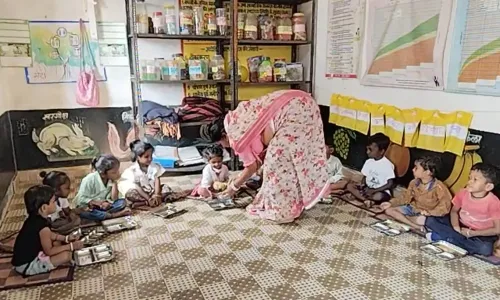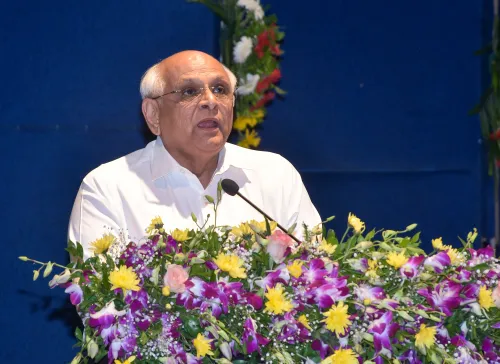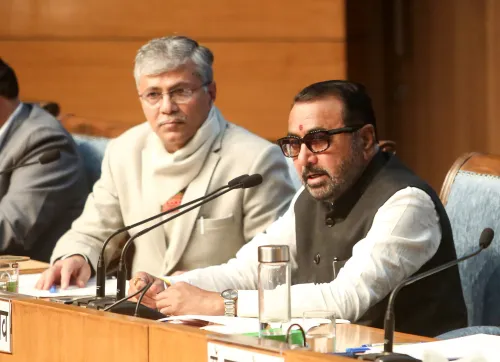Government's Commitment to Strengthening Healthcare Infrastructure: JP Nadda

Synopsis
Key Takeaways
- Government prioritizes healthcare infrastructure.
- Inauguration of Nuclear Medicine Facility.
- Establishment of Regional VRDL for viral diagnostics.
- Affordable healthcare services for low-income patients.
- Significant advancements at AIIMS Bilaspur since 2017.
New Delhi, March 8 (NationPress) The government is dedicated to strengthening the healthcare infrastructure, stated Union Minister of Health and Family Welfare Jagat Prakash Nadda.
He made these remarks while assessing the progress and reviewing the execution of crucial healthcare programs at the All-India Institute of Medical Sciences (AIIMS) Bilaspur, Himachal Pradesh.
During the visit, the Health Minister explored the institute's amenities and inquired about the availability and operation of various patient care services on the occasion of Jan Aushadhi Diwas.
Nadda also commenced the construction of the Regional VRDL (Viral Research and Diagnostic Laboratory) and inaugurated a Nuclear Medicine Facility along with an additional Amrit Pharmacy Unit-3 at AIIMS Bilaspur.
“The government is determined to continue enhancing the healthcare infrastructure in the region,” remarked Nadda, commending the significant advancement of AIIMS Bilaspur since its establishment was laid by Prime Minister Narendra Modi on October 3, 2017.
“Residents of Himachal Pradesh and surrounding areas will continue to gain immensely from the high-quality medical education and healthcare services offered by AIIMS Bilaspur, thanks to the cooperation of both the Centre and the state,” he further noted.
The Nuclear Medicine Facility at AIIMS Bilaspur boasts advanced technology, including PET/CT, SPECT/CT, SPECT radio-pharmacy/hot lab, and a Low-Dose Therapy (LDT) ward, with an investment of Rs. 30.43 crore.
Equipped with these in-house state-of-the-art facilities, the department will be capable of synthesizing most necessary radiopharmaceuticals, enabling a broad spectrum of diagnostic assessments such as renal scans, liver scans, bone scans, thyroid scans, cardiac scans, gastrointestinal scans, and cancer imaging.
In addition to extensive diagnostic services, the facility will also offer low-dose radionuclide therapy for patients suffering from thyroid cancer, prostate cancer, neuroendocrine cancer, liver cancer, and those experiencing bone and joint pain.
“These services will be provided at significantly lower costs compared to the private sector, and patients enrolled in the PMJAY and Himcare insurance schemes, as well as those living below the poverty line, will receive these services free of charge,” Nadda stated.
The dedicated ward will also enable day-care treatment for patients with low-risk thyroid cancer, prostate cancer, and other conditions at minimal costs. Moreover, the VRDL at AIIMS Bilaspur will be one of 11 regional VRDLs among a total of 165 across India, featuring a cutting-edge Biosafety Level 3 laboratory, advanced sequencing capabilities, and comprehensive diagnostic and research facilities.
The establishment of the Regional VRDL is set to play a crucial role in diagnosing viral diseases and other infectious illnesses, effectively responding to the changing epidemiology of both known and emerging viral threats.
The Regional VRDL will not only improve the capacity for timely identification of viral infections but also provide localized expertise and services that are frequently lacking in smaller or remote healthcare environments.
Its objective is to monitor disease outbreaks, enhance understanding of disease epidemiology through robust surveillance and reporting systems, and strengthen public health preparedness.










